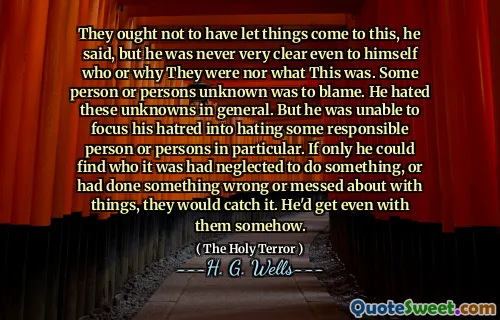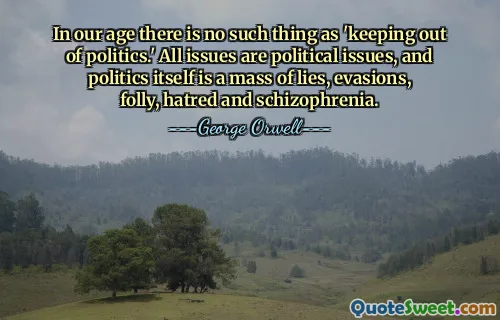
They ought not to have let things come to this, he said, but he was never very clear even to himself who or why They were nor what This was. Some person or persons unknown was to blame. He hated these unknowns in general. But he was unable to focus his hatred into hating some responsible person or persons in particular. If only he could find who it was had neglected to do something, or had done something wrong or messed about with things, they would catch it. He'd get even with them somehow.
In "The Holy Terror," a character expresses frustration and confusion over a situation that has escalated beyond control. He acknowledges that things should not have reached this point, yet he struggles to identify the specific individuals or factors responsible for the chaos. This ambiguous blame causes him inner turmoil, as he grapples with an unspecified hatred towards those who have contributed to the state of affairs, but fails to direct his feelings towards concrete targets.
The character's desire for vengeance is clear; he longs to pinpoint the culprit who fell short in their duties or mishandled events. The absence of clarity regarding who is at fault intensifies his feelings of helplessness. Ultimately, his wish to confront those responsible reflects a deeper frustration with the complexities of accountability and the unknown forces that shape their reality.








